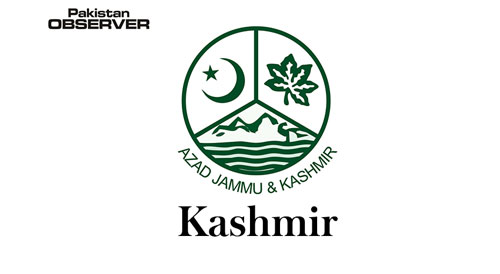Srinagar
In occupied Kashmir, the Jammu and Kashmir Democratic Political Movement (DPM) has said that solution of Kashmir dispute lies in the implementation of the United Nations (UN) resolutions and Kashmiri people will continue their peaceful struggle till complete success.
DPM General Secretary Pir Hilal Ahmed in a statement issued in Srinagar said that unless the Kashmir dispute was resolved in accordance with the will of the Kashmiri people and UN resolutions, lasting peace could not be established in South Asia.
He expressed concern over the introduction of new domicile laws in Kashmir by India and said that the laws had made Indian citizens eligible to get permanent citizenship in Kashmir.
He termed it an Israeli-style action and said that as a result, India was pursuing a policy of changing the demography by settling non-Kashmiris in the territory.
The DPM leader deplored that the Indian troops were killing innocent Kashmiri people particularly youth on daily basis to suppress the liberation movement but would never succeed in their sinister designs. He urged the United Nations and the world community to play their role in implementing the UN Kashmir resolutions so that permanent peace could be established in the region.
Meanwhile, Jammu and Kashmir Islami Tanzeem-e-Azadi in a statement expressed concern over non-provision of medical facilities to the ailing party Chairman, Abdul Samad Inqilabi despite repeated appeals by his family members.
An ITA spokesman said that the health of Abdul Samad Inqilabi, languishing in Central Jail, Srinagar, is deteriorating with each passing day. He said that the party chairman was being deprived of medical treatment despite doctors had advised the authorities, some two months ago, to admit him in a Srinagar hospital for heart treatment.
Justification of the abrogation of the special status of Jammu and Kashmir and endorsement of the controversial Citizenship Amendment Act (CAA) by Indian Prime Minister Narendra Modi during his address to the nation on Saturday drew strong criticism with some political analysts saying Modi’s speech could trigger more anger in Kashmir.
While commenting on the Modi’s address, the critics called the assertions as a brazen attempt to deny the reality and further the Hindutva agenda at a time when India should more be focusing on mitigating the sufferings of the Kashmiri people and overcoming great economic and health crises inside India and Jammu and Kashmir.
“Sadly, Modi lives in deep denial, and we are supposed to get used to this denial of reality,” Siddiq Wahid, a Kashmiri professor at Dadri-based Shiv Nadar University, told an Arab daily, adding that the speech could trigger “more anger in Kashmir.”
“Kashmir is headed for more conflict — both domestic and international — and anger. It is headed for more alienation,” he added.
Modi’s speech nearly two months after the lockdown is seen by political analysts as a “brazen attempt to insult the sensibilities of the people.—KMS—KMS










